Army Hospital Research & Referral, New Delhi
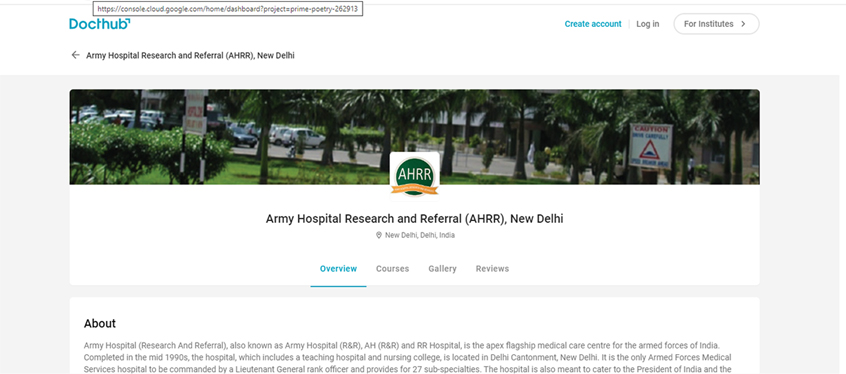
- Read more about Army Hospital Research & Referral, New Delhi
- Log in to post comments
- 641 views
A Diploma in Radio-Diagnosis is a specialized program designed to provide education and training in the field of diagnostic radiology. Diagnostic radiology involves the use of medical imaging technologies to visualize and diagnose diseases and conditions. This diploma is typically geared toward healthcare professionals, such as radiographers or medical imaging technologists, who specialize in conducting and interpreting diagnostic imaging studies.
Here are some common components of a Diploma in Radio-Diagnosis program:
Radiographic Imaging Techniques: Training in the use of various imaging modalities, such as X-rays, computed tomography (CT), magnetic resonance imaging (MRI), ultrasound, and nuclear medicine.
Radiation Physics: Understanding the principles of radiation and its interaction with the human body in the context of diagnostic imaging.
Anatomy and Physiology: In-depth knowledge of human anatomy and physiology to facilitate the interpretation of medical images.
Radiographic Positioning and Techniques: Practical skills in positioning patients and operating imaging equipment to obtain high-quality diagnostic images.
Patient Care in Radiology: Communication skills, patient assessment, and care during diagnostic imaging procedures.
Radiation Safety and Protection: Practices to ensure the safety of patients, healthcare professionals, and the public during diagnostic imaging.
Contrast Media Studies: Training in the administration and interpretation of contrast agents for enhanced imaging studies.
Medical Imaging Equipment Maintenance: Basic understanding of the maintenance and quality control of diagnostic imaging equipment.
Ethics and Legal Considerations: Understanding ethical and legal aspects related to the practice of diagnostic radiology.
Clinical Internship/Practicum: Hands-on training in a clinical setting under supervision, where students can apply their knowledge and skills in real patient scenarios.
Upon completion of the program, individuals with a Diploma in Radio-Diagnosis are typically prepared to work as radiographers or diagnostic medical imaging technologists in hospitals, clinics, imaging centers, and other healthcare settings. They play a crucial role in the diagnostic process by producing high-quality images that aid healthcare providers in diagnosing and treating various medical conditions.
As with any educational program, it's important to ensure that the institution offering the diploma is accredited by relevant accrediting bodies or organizations in your region. Additionally, some individuals may choose to pursue further education, such as a Bachelor's or Master's degree, for career advancement or specialization in specific areas of diagnostic radiology
Diploma in Radio-Diagnosis

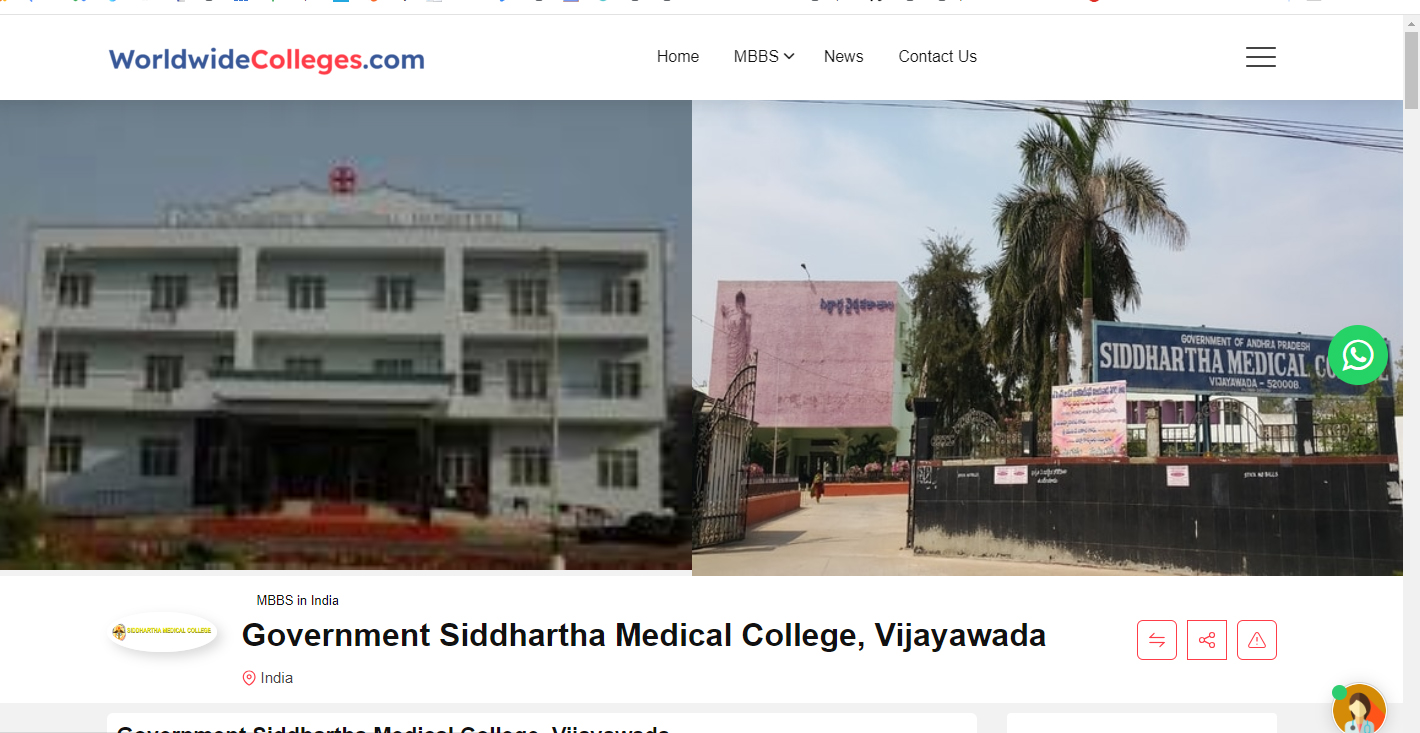
Siddhartha Medical College was established by Siddhartha Academy of General and Technical Education, Vijayawada -10 in November, 1980 with an annual intake of 100 students. As this is a statewide college admissions will be done following six point formula. The then Hon'ble Chief Minister of Andhra Pradesh late Sri.T.Anjaiah inaugurated the college on 13-3 1981.and the regular session started from 16- 3 – 1981.
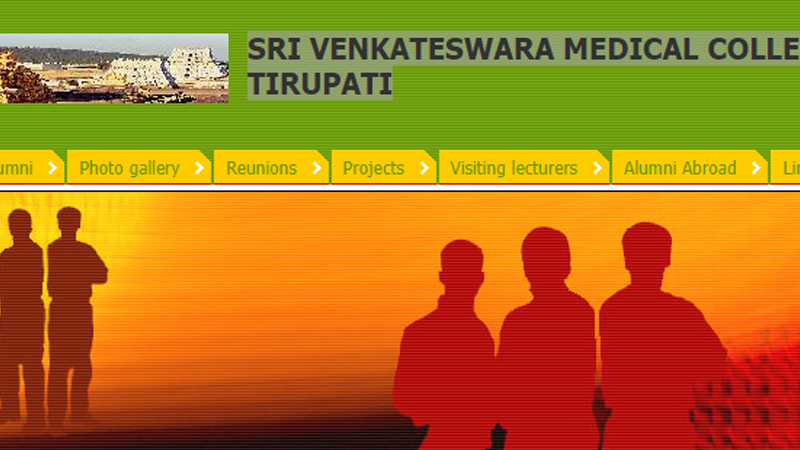
I have created this site, mainly to provide a forum for the alumni of SVMC to get together on line with a view to develop an association in the future.
We can keep in touch, may be organise reunions and give something back to the college.
I will try and get some pictures and a list of alumni as soon as possible.
I am trying to organise a reunion of the 82 batch and would like to contct as many of my friends from the year as possible.
Please mail me with your contact details at venkat@svmedicalcollege.org
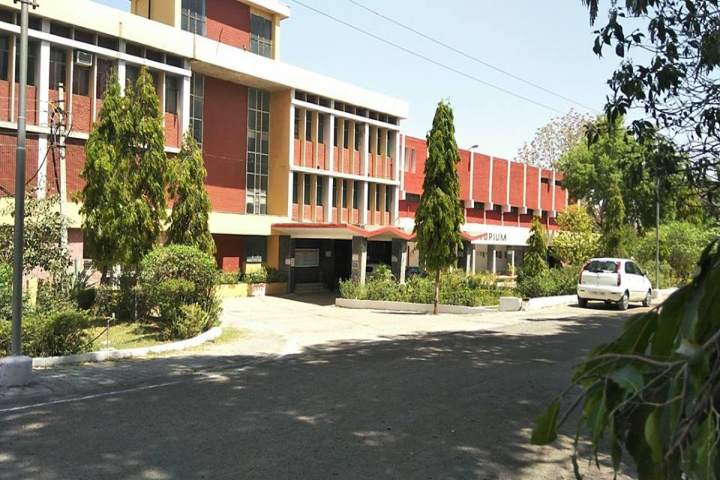
We all know that good health and good sense are life's greatest blessings. Good health plays a crucial role in the life of a human being. An unhealthy person won’t do anything fruitful in his life. Preservation of health is indispensable. It is confined to natural’s laws involving body, mind and environment. These laws relate to fresh air, sunlight, healthy diet, regular exercise, yoga, meditation, relaxation, enough sleep and cleanliness. There are many factors that affect a person’s health that can be physical, biological, psychological, and social stress.
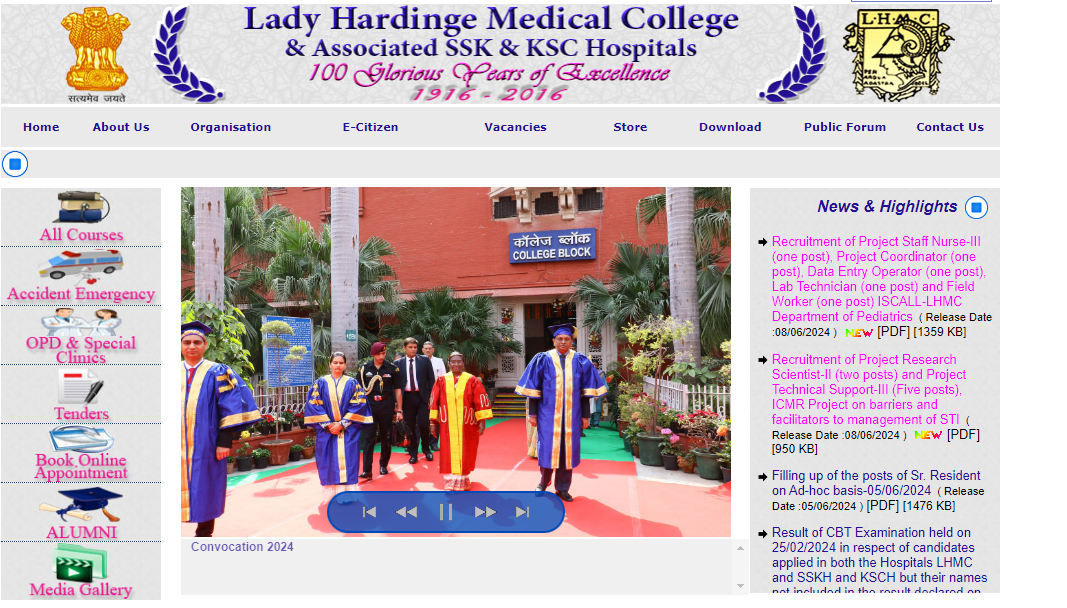

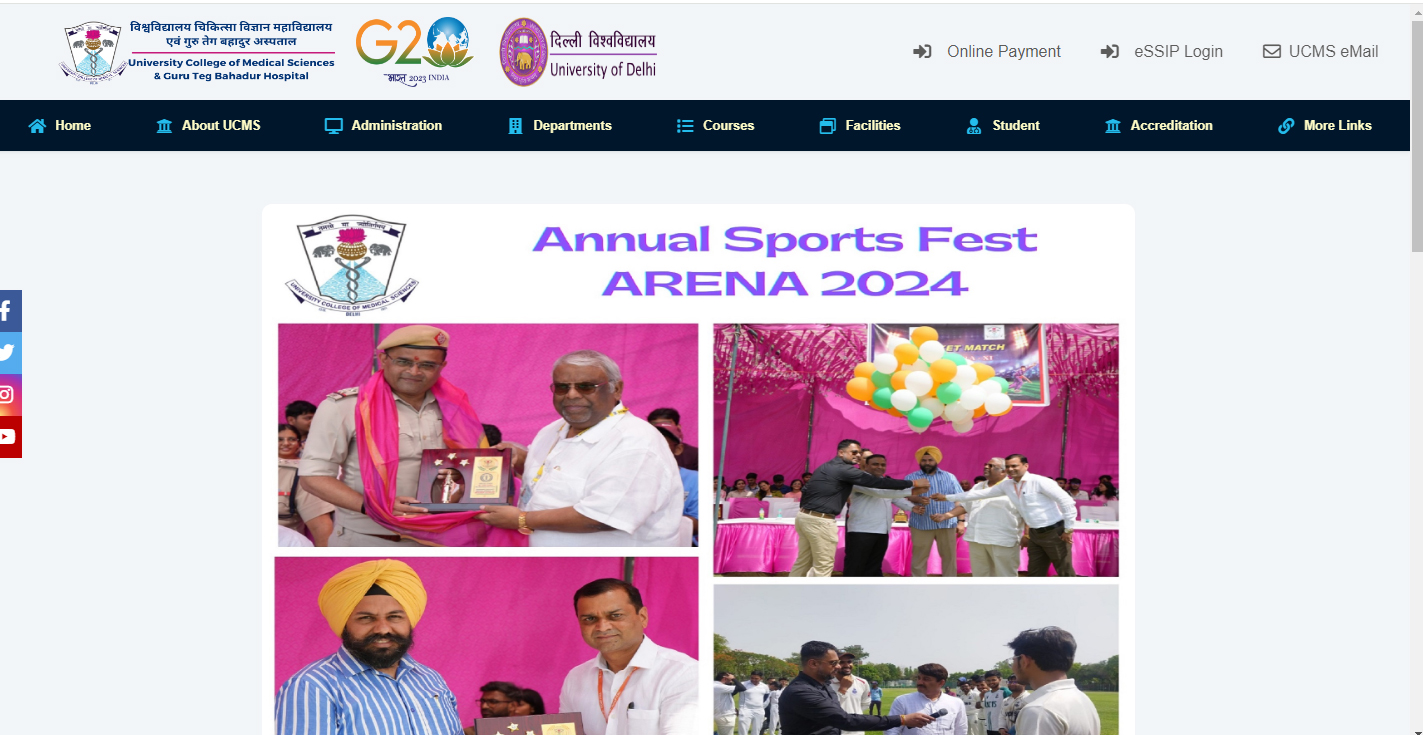
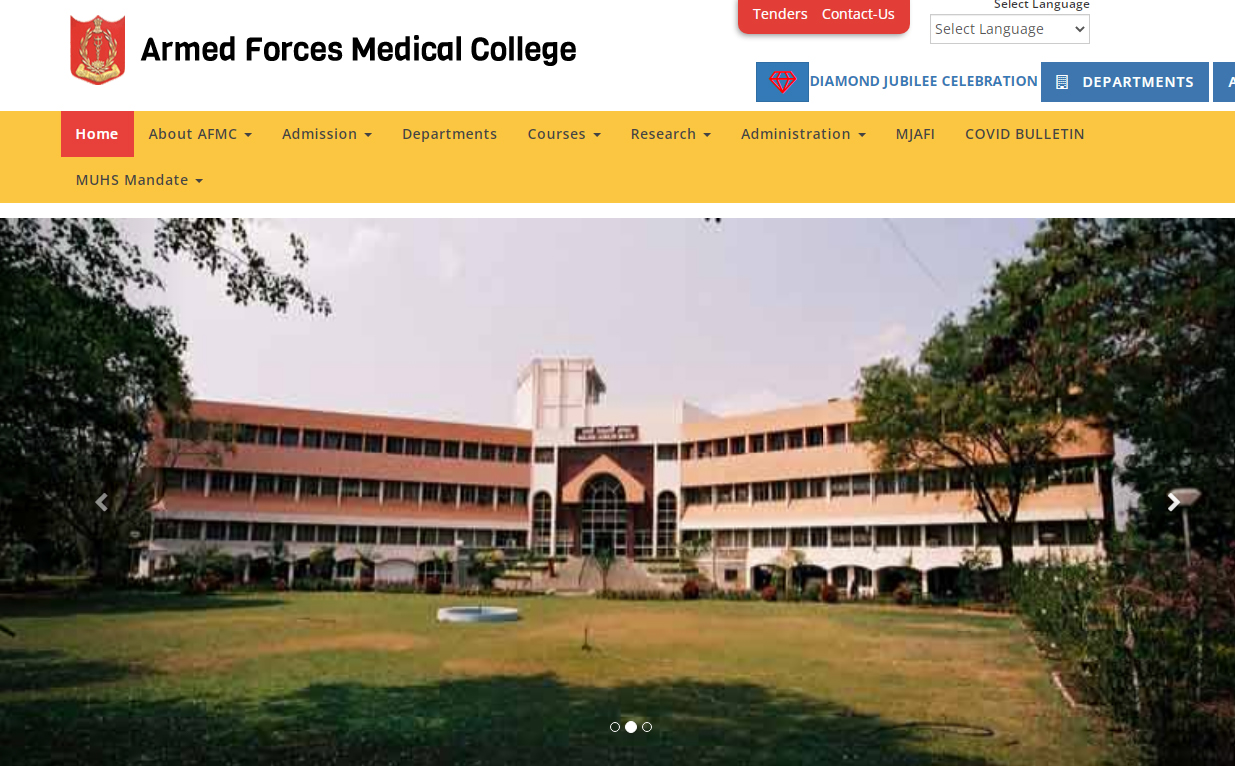
Armed Forces Medical College, Pune is a premier medical institution in India. AFMC has the distinction of being the first medical college set up by the Armed Forces of any country in Asia. The college is a unique institution which combines medical education with training specific to the health care needs of the Armed Forces. AFMC has been consistently rated among the top three medical colleges in India by surveys published by reputed newsmagazines for the past decade.

AIIMS, Rishikesh is an institute which strives to provide excellent tertiary patient care, world class medical education and groundbreaking research. Institute aims to mentor students and train so that they represent institute globally as pioneers, to serve as effective deliverers of patient care in society.AIIMS, Rishikesh functions as a “Vishwavidyalaya”, which implies, “Learn from world and also teach world”. Eighty-four visiting professors from all over world reinforce this message.
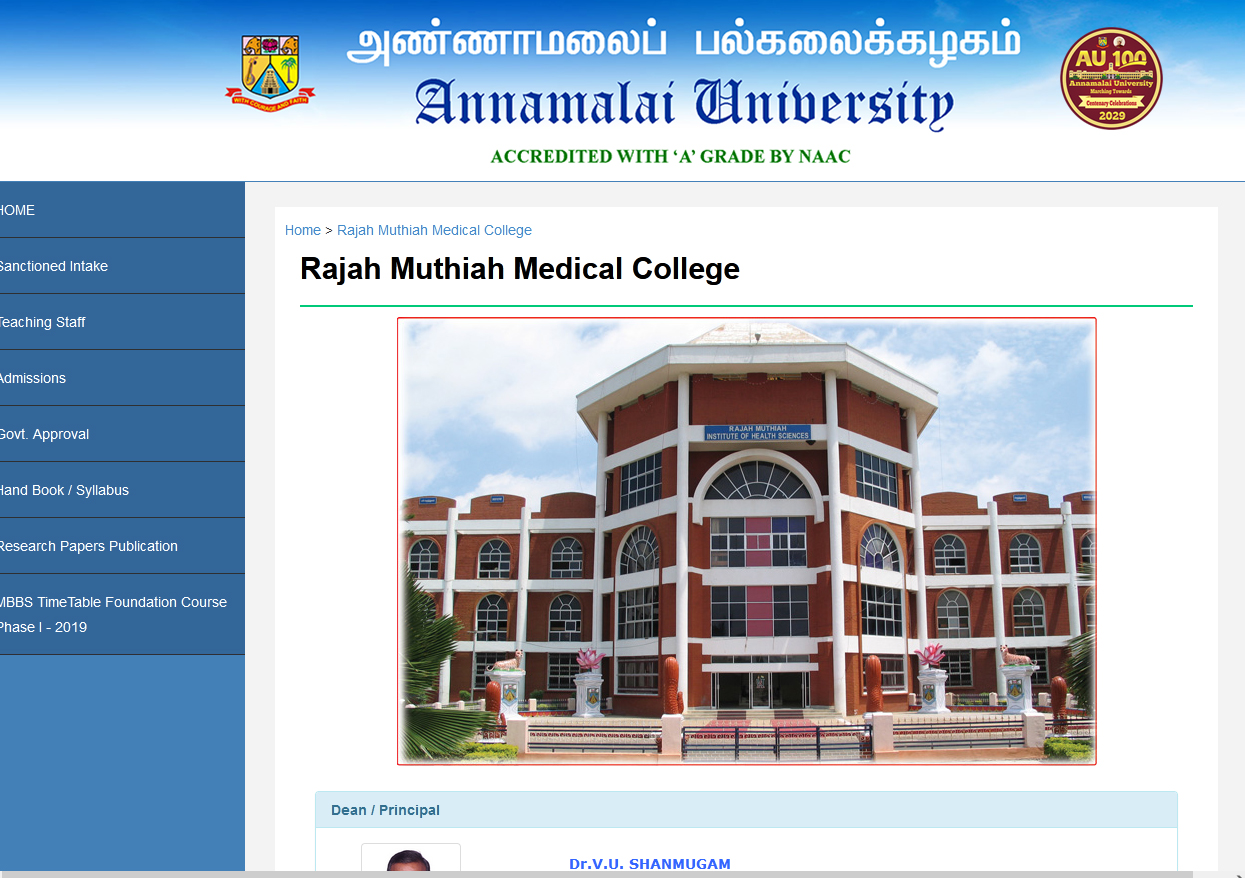
Profile
The Rajah Muthiah Medical College was established in the year 1985 in the Annamalai University. Over the years the College has developed steadily into one of the finest medical colleges in South India and has earned a name for itself in the field of medical education.